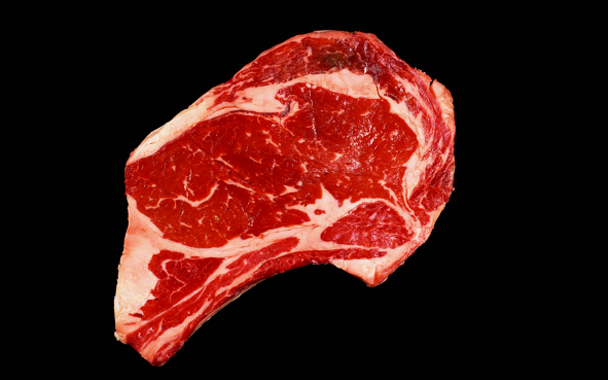Something to Get Mad About
The variant of Creutzfeldt-Jacob Disease (vCJD) caused by eating the meat of cattle afflicted by mad cow disease used to show up only in the United Kingdom and a few other European and Middle Eastern countries. Authorities in the meat industry here repeatedly assured us that vCJD had never been found in the United States.
They may have to eat their words. Medical officials are concerned that a 22-year-old Virginia woman who died last week of encephalopathy, a degenerative brain disorder, may have been a victim of vCJD, even though she had never set foot outside the United States. The only other cases of the disease in this country were found in two immigrants originally from the U.K. and a recent immigrant from Saudi Arabia. It will take several months before the Virginia Department of Health has conclusive results.
I, for one, will be waiting nervously. The same meat industry sources assured us that mad-cow-infected cattle were strictly a European problem—until one of those cows unexpectedly turned up in a Washington state slaughterhouse five years ago.
On a Related Note
You no doubt remember the United States Department of Agriculture’s massive recall of beef from Westland/Hallmark Co. in California in February, after workers at the company’s plant were filmed using forklifts, electronic prods, and high-pressure water hoses to force so-called “downer” cows onto their feet for slaughter. One of the reasons that it is illegal to process downers for human consumption is that cattle too feeble to stand are more likely to carry mad cow disease.
Well, earlier this month the bill for that fiasco (the country’s largest meat recall) was tendered. It came to a cool $67.2 million. Embattled Westland/Hallmark is unlikely to be able to come up with that sort of cash.
So who do you suppose is going to be stuck with the tab?
Hint: Look in the mirror.
Grass Pains
It seems like every few months researchers are finding new weeds that have become resistant to modern agriculture’s potent arsenal of herbicides. The latest to join this rogues’ gallery came to light late last month when patches of particularly tenacious johnsongrass were reported to have been found in Mississippi and Arkansas. The weeds could survive repeated sprayings of glyphosate, the active ingredient in Monsanto Co.’s herbicide Roundup.
Bob Scott, a weed specialist with Arkansas Extension told the Delta Farm Press that the finding is “hardly a surprise,” given that there are 5 million acres of Roundup Ready crops (crops genetically modified to tolerate the herbicide, which kills any weeds among them) in the state. “It’s inevitable that such [Roundup-resistant] weeds are produced,” he said.
Inevitable? I don’t think so. Farmers just have to stop growing Roundup Ready plants, which, one should note, only came on the scene 12 years ago.
Clean Sailing
Lindblad Expeditions, the cruise line with a commitment to conservation, has joined forces with Chefs Collaborative to launch a program it is calling Chefs at Sea. Beginning this fall, passengers will be able to take part in presentations, demonstrations, and market visits led by a chef who embraces the ethos of fresh, local, and sustainable. Among the cooks to set sail in September are Barton Seaver of Hook Restaurant in Washington, D.C., and Bruce Sherman of North Pond Restaurant in Chicago. With people like them on board, Lindblad is once again charting the right course.


